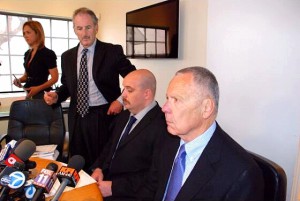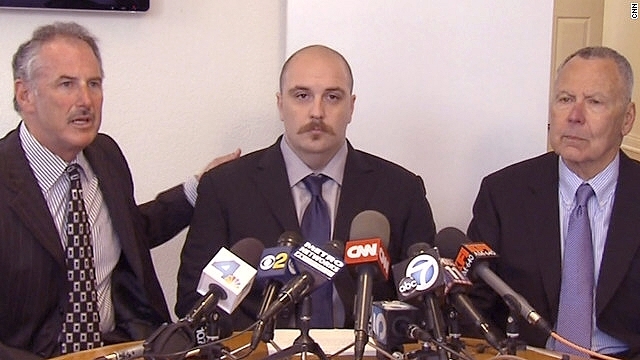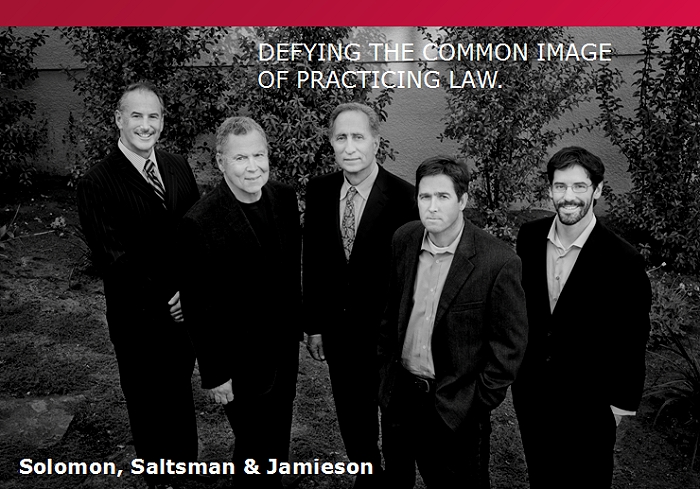TOBACCO BOONDOGLE Now You’ll Need a License to Sell a Cigarette
By Ralph Saltsman with Stephen Warren Solomon
and Stephen Jamieson
Did you think you have enough laws regulating your business? As an ABC licensee, there’s little you can do without running into an ABC statute or an ABC rule. But just when you thought you had a sufficient load of laws to follow, there’s a whole new set coming. Can you guess the next area of blanket regulation? Just take a look around your business and speculate where the next bureaucratic boondoggle will take form.
Effective this June 30 all retail sales of cigarettes and tobacco products will require the retailer to be licensed. Selling tobacco products without that license will be a misdemeanor. The Cigarette and Tobacco Products Tax Law already requires distributors and wholesalers of tobacco products to be licensed by the State Board of Equalization. Now, the new legislative scheme, the California Cigarette and Tobacco Products Licensing Act of 2003 beginning at Business and Professions Code Section 22970, will require licensure for all levels of tobacco sales from manufacturers to distributors to retailers. Under its own terms, the legislation scheme is repealed effective January 1, 2010. Maybe no one will be buying tobacco by then, and perhaps tobacco products won’t be sold anymore. But until then: sell a cigarette (without a license), go to jail.
More good news: you don’t have to wait for June for the law to affect you and your business. An application for such license must be filed on or before April 15, 2004. The application will include the applicant’s name, address and phone number; the business name, address and phone number of each retail location. For multiple outlet retailers, an address for receipt of correspondence must be included, such as a headquarters or corporate office. Felony convictions must be disclosed, and the application will include a statement that the applicant has not and will not violate any provision of the new law. Knowingly submitting false information on this application will be a misdemeanor with a maximum sentence of one year in the county jail and a fine.
Since the middle of February, the board has been sending applications to retailers based upon the board’s inventory of businesses whose tax identification numbers indicate retail sales of tobacco products. If you as a retailer haven’t received this application by now, call the BOE at 1-800-400-7115 and ask that an application be mailed to you. Be prepared to state your tax ID number.
After the application has been submitted, the BOE will investigate to determine the truthfulness of the information. “The board may issue a license without further investigation to an applicant for a retail location if the applicant holds a valid license from the Department of Alcoholic Beverage Control for that same location.”
Assuming that the retailer qualifies and has not been previously issued a license that was revoked or suspended, the BOE will issue a license. If an application is denied, the applicant may “petition for a redetermination of the board’s denial.” A hearing may ultimately be held on the issue of denial.
Once licensed the retailer has to adhere to statutes rules and regulations in order to keep that license and not get fined by the board. For example, “any person who possesses, stores, owns or has made a retail sale of an unstamped package of cigarettes” is subject to misdemeanor prosecution with a maximum jail sentence of one year and fines from $1000 to $50,000. Of course the board is also authorized to revoke that license and may seize tobacco products under a number of circumstances. Even a simple failure to display the license carries a penalty of $500.
Section 22974.8 of the Act (all set forth in the Business and Professions Code) references the STAKE Act (Stop Tobacco Access to Kids Enforcement). Both the Penal Code and the STAKE Act already provide criminal or civil penalties for sales of tobacco products to minors. Similar to use of decoys in law enforcement investigations for sales of alcohol to minors, local police and sheriffs have already been authorized to engage tobacco sales to minors decoy programs.
In addition to the penalties addressed in the STAKE Act and Penal Code, the board can discipline a retail licensee. A first violation results in a warning letter. A second violation within 12 months of the first violation subjects the retailer to a fine of $500; a third violation: $1000 fine. “Upon the fourth to the seventh conviction of a violation…within 12 months, the board shall suspend the retailer’s license to sell cigarette and tobacco products for 90 days.”
The eighth violation within 24 months requires to the board to revoke the license. “The decision of the board to suspend or revoke the retailer’s license may be appealed to the board within 30 days after the notice of suspension or revocation.”
Any peace officer is authorized to conduct reasonable inspections of premises selling tobacco products retail. On and after June 1, 2004, any person caught selling cigarettes or tobacco products without a license, or with a suspended license or after the license has been revoked will be subject to misdemeanor prosecution.
This comprehensive legislation was signed by Governor Gray Davis last October. Excerpts from the Governor’s letter to the legislature explain the underlying intent of the bill: “I am signing Assembly Bill 71 which would require the establishment of a program to license tobacco retailers, wholesalers/distributors, importers and cigarette manufacturers, administered by the State Board of Equalization (BOE). The bill also includes additional fines and penalties for sales of tobacco to minors, including license suspension, with such suspension or revocation for tobacco sales to minors in effect only after repeated violations.”
The former Governor concluded: “I am strongly opposed to the provisions of this measure that allow a vendor to remain licensed by the State to sell tobacco after they have been sanctioned numerous times for selling cigarettes to minors. I urge the Legislature to enact tougher legislation next year that enables the state to aggressively monitor and enforce laws prohibiting tobacco sales to minors and specifies stronger penalties on those who violate the law.”
All of this gives rise to the following scene which will undoubtedly take place and repeat itself throughout the state: Your local police department, laden with grant money it received from the state which got part of it from the Feds, organizes a comprehensive operation into all the licensed premises within its jurisdiction. No licensee is aware of the planning or timing of the impending investigation.
When you least expect it, a kid walks confidently into your business. He (or she) looks young, but certainly acts in a very mature and self assured manner. That may be because this is the tenth location visited that evening and all under the watchful supervision of a vice officer. The kid gets a Bud Light and asks for and receives a pack of whatever cigarettes teens prefer to smoke that week. Your clerk gets not one but two violations: sale of cigarettes to a person under 18 and sale of alcohol to a minor. Not only are you now concerned with loss of your ABC license, you are legitimately worried about a new and untested process that could lead to the loss of your retail tobacco license. Needless to say, you better have both your ABC license and tobacco sales license prominently displayed, or those are additional violations.
Certainly it has long been the intent of the state to reduce and then eliminate sales of tobacco products to minors. But it is also the obvious and explicitly stated goal of the government to reduce sales of tobacco products across the board. In the October 12th Davis letter to the legislature, the former Governor noted that in the preceding five years, his administration had: “Reduced the rate of youth smoking to one of the lowest in the nation and reduced the adult smoking rate faster than any other state….”
Effective from June 30, 2004 to January 1, 2010, the sweeping scope of the California Cigarette and Tobacco Products Licensing Act of 2003, is poised to cut deep and wide. The BOE already believes it knows who all the retailers are. This law will fill in any blanks in that bank of information. This new comprehensive law has criminal prosecutorial teeth, and it just doesn’t sound like California is going to coddle violators, does it.
Solomon, Saltsman & Jamieson are attorneys practicing in the areas of ABC law, ABC Appeals Board cases, and all related Land Use Matters such as City and County Conditional Use Permits, Variances, Police and Fire permits, Entertainment law, and Gambling Law; as well as Business and Personal Injury litigation. Solomon, Saltsman & Jamieson can be reached at 800 405 4222.”







